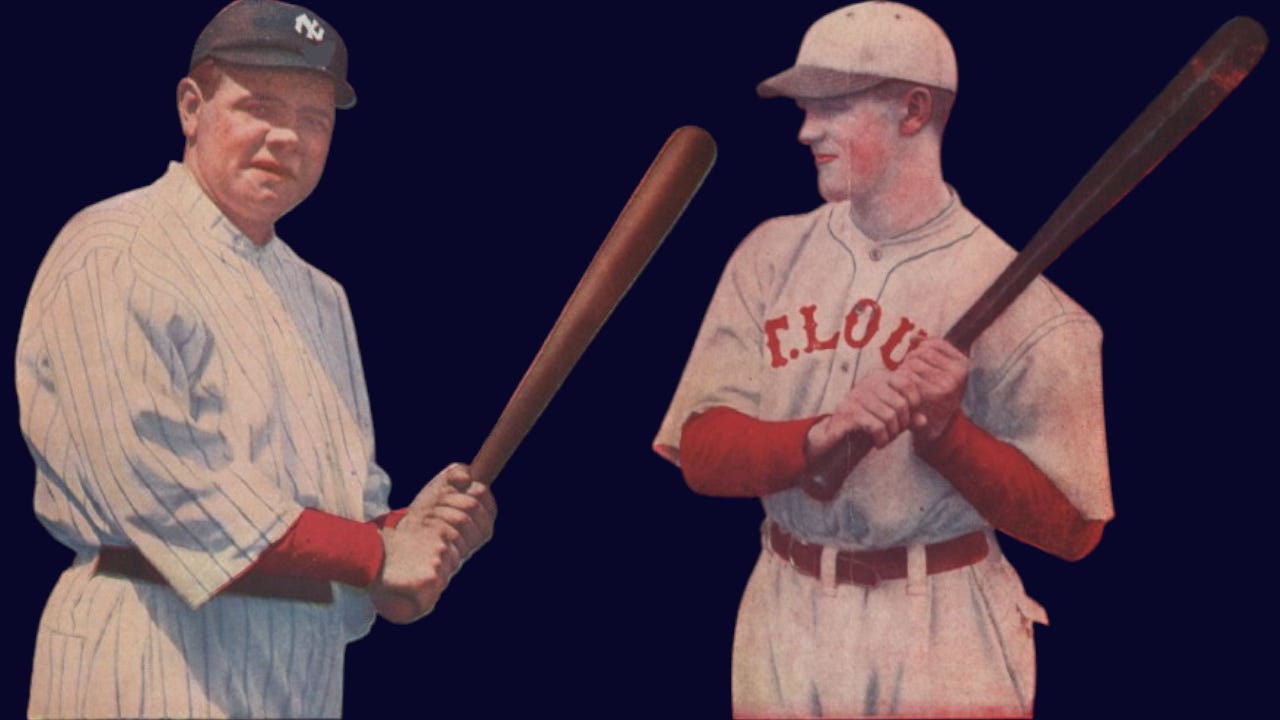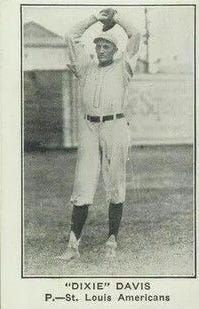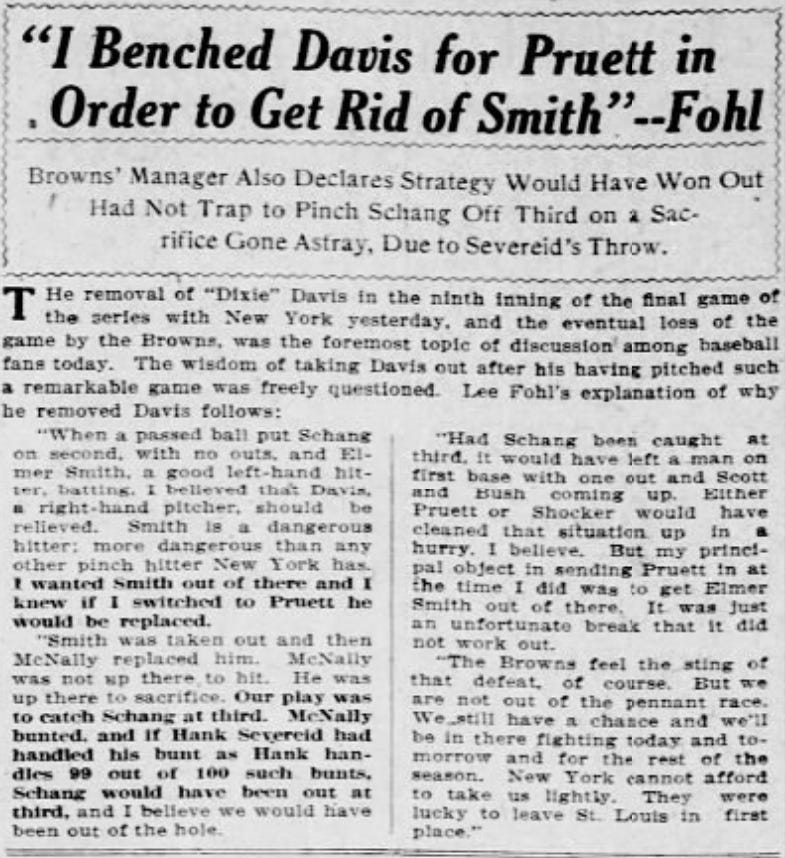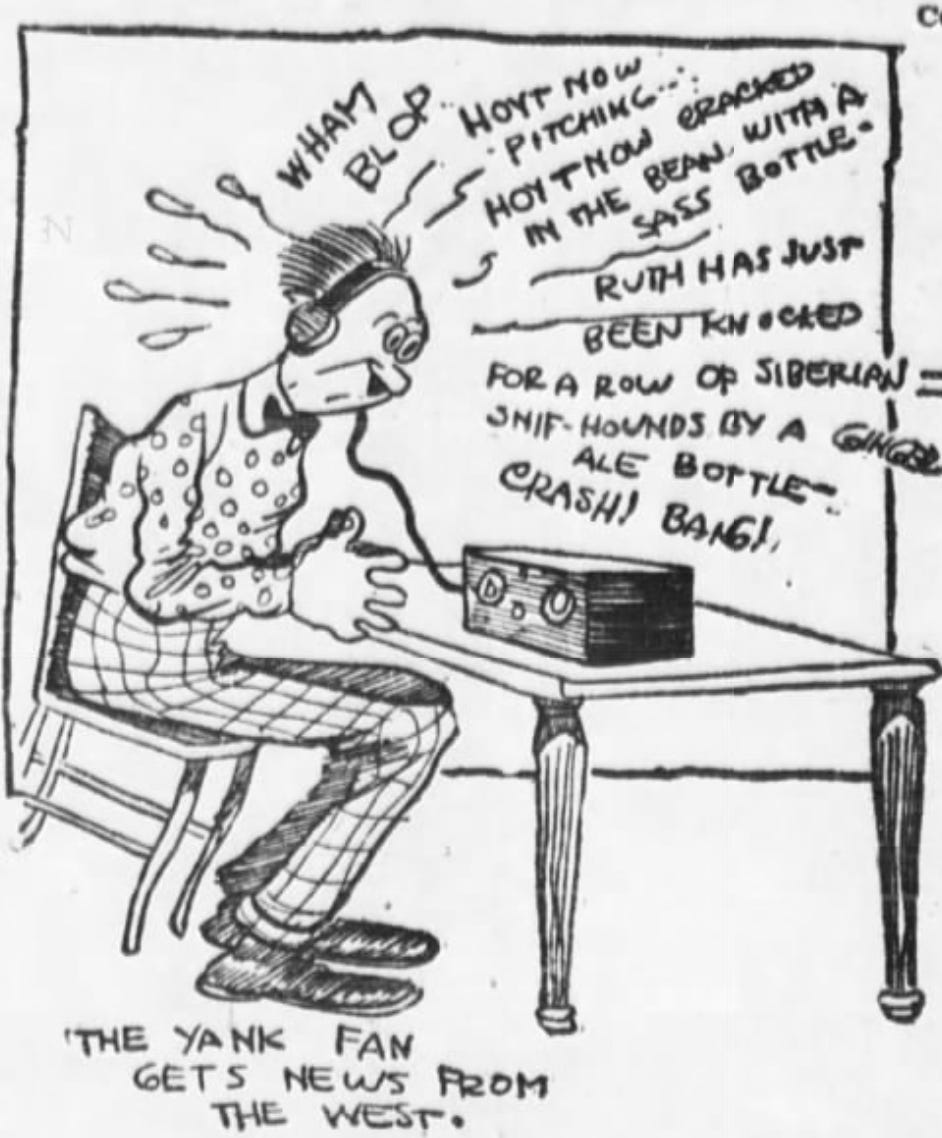The Pennant Race Time Forgot
The 1922 American League pennant race was one of the best of all time.
But nobody talks about it.
The Yankees and Browns went into late September neck and neck. New York played a 3 game series in St. Louis from September 16th through the 18th that was one of the most memorable in American League history.
They called it the “little world series,” though I prefer to think of it as just a great pennant race.
You’ve got to remember, by the way, that the St. Louis Browns had never been contenders before this season. In fact, St. Louis had never been in the running for an American League or National League pennant up to this point. The famous St. Louis Browns of the old American Association won 4 pennants in a row, but the last of those came in 1888 — and the American Association was nothing more than a distant memory by 1922. The old St. Louis team of the Union League won the only Union League pennant in 1884 — but, of course, there are questions about whether we should even consider that league a “major league.”
As you can imagine, this was a huge deal in St. Louis.
The first game was an all time classic, with the Yankees barely winning, 2-1.
One of the biggest stories from that first one was of Babe Ruth striking out.
The real story, however, came after Yankees right fielder Whitey Witt was hit in the head with a thrown soda bottle in the bottom of the 9th inning.
The second game was also spectacular. It was scoreless until the top of the 6th, when Ruth connected for a home run:
The Browns then came back with an explosion of runs, winning the game 5-1 behind the steady pitching of Hub Pruett.
That set the stage for the third game. St. Louis was now a half game behind the Yankees for the American League lead.
St. Louis went out to an early 2-0 lead. Starter Dixie Davis, who most baseball fans these days have never heard of, was shutting down the Yankees.
New York did come up with a run in the top of the 8th, but that was all. It looked like Davis was going to win the game, especially since the bottom of the order was due up for New York.
Catcher Wally Schang got a base hit off Davis’ glove, however. Then, with pinch hitter Elmer Smith — a lefty — up to hit, Davis threw a pitch that went wild. It was later ruled a passed ball against catcher Hank Severeid.
After that passed ball, for some strange reason, Browns manager Lee Fohl decided to take Dixie out.
In came Hub Pruett, who had pitched a complete game victory just the day before.
Pruett came in because he was left handed. The idea was to negate the platoon advantage, or, ideally, to get Smith out of the game.
So what did the Yankees do? They pinch hit for the pinch hitter, sticking right handed hitting Mike McNally up there.
McNally then bunted.
I have no idea why in the world the managers made all those substitutions for a bunt. But bunt is what he did - and it worked.
The bunt went to Severeid, who had just given up the passed ball to get the Browns in this mess. He decided to try to throw Wally Schang out at third. But the throw was not in time.
Pruett walked the next man on four pitches. It seems that the walk was unintentional. He was lifted for Urban Shocker, who was the losing pitcher in the first game, and who was a right handed hurler.
Meanwhile, the Yankees left starting pitcher Bullet Joe Bush in there to hit for himself, despite being down 2-1 in the top of the 9th with nobody out. Bush hit a ground ball to second base. Schang was out at the plate, but the Browns only got one out of that.
And that brought up none other than Whitey Witt.
Witt’s single scored two runs and ended the Browns’ pennant hopes for that year. The Yankees wound up winning the pennant by a single game.
St. Louis did wind up winning the pennant in 1944 — again by one game — but it wasn’t quite the same.
One wonders what would have happened if Dixie had stayed in the game:
Meanwhile, the lasting image is of the victim of the pop bottle — and his sweet revenge.























Love the included newspaper clippings. As for the post season, I think once the leagues expanded beyond 8 teams adding the divisional format was the right move. It would be interesting if there was ever any talk of a playoff format say pre WW2?